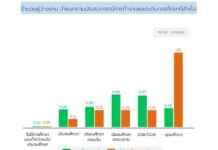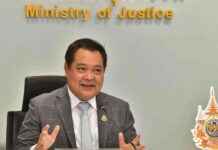Thai banks have agreed to pay a reduced annual contribution of 0.23% of deposits to the Financial Institutions Development Fund (FIDF) for the next three years, according to Deputy Minister of Finance Paopoom Rojanasakul. This decision is part of an effort to address the issue of household debt in the country. Currently, banks are required to pay an annual regular fee rate of 0.46% of their deposits to the FIDF, which serves as the Bank of Thailand’s rescue arm, providing financial assistance to struggling institutions.
In addition to the reduced FIDF fee, the Thai Bankers’ Association (TBA) has introduced a new debt restructuring program. This program will cover borrowing amounting to 1.4 trillion baht and is designed to ease the burden of household debt over the course of three years. The goal of these initiatives is to support individuals and families who may be facing financial challenges and alleviate the overall level of debt in the country.
The decision to lower the annual contribution rate to the FIDF reflects a collaborative effort between financial institutions and the government to address economic concerns and promote stability in the banking sector. By reducing the financial burden on banks, they can in turn provide better support and services to their customers, particularly those who are struggling with debt obligations.
Looking ahead, the Finance Ministry has set its sights on achieving a GDP growth rate of 3.5% in 2025. To reach this target, the ministry is planning to implement additional stimulus measures to stimulate economic growth and recovery. These efforts are crucial in navigating the challenges posed by the current economic landscape and ensuring the financial well-being of individuals and businesses across Thailand.
Overall, the recent developments in the banking sector, including the reduced FIDF fee and the debt restructuring program, are positive steps towards addressing household debt and supporting economic recovery. By working together and implementing strategic initiatives, banks and financial institutions can play a key role in fostering financial stability and resilience in the face of economic uncertainties.




















